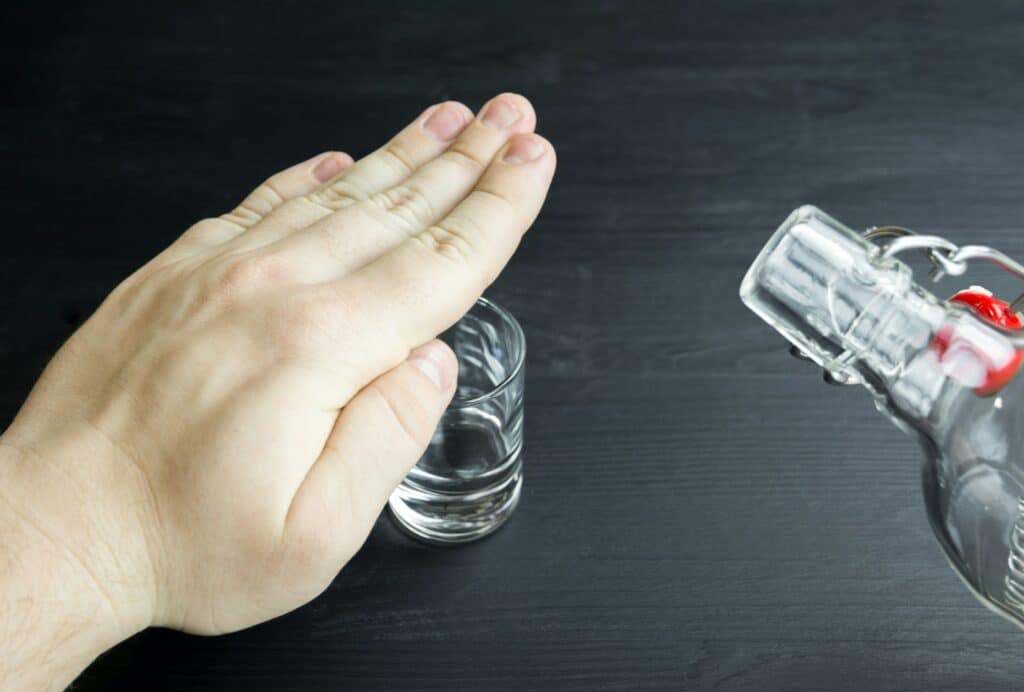Detoxing from alcohol is a crucial first step in recovery, but it comes with challenges. Stopping alcohol suddenly can lead to withdrawal symptoms that range from mild to life-threatening. That’s why medical detox is so important: it helps manage these symptoms and prevents serious complications during the process. In this post, we’ll explain what medical detox is, how long it typically takes, and why it’s the safest and most effective way to detox from alcohol.
What is Medical Detox for Alcohol?
Medical detox is a supervised process where professionals help you safely stop drinking. It involves close monitoring of your health and the use of medications to manage withdrawal symptoms.
During this process, medical staff can address any issues that arise, keeping you safe as your body adjusts to functioning without alcohol. This approach reduces the risk of dangerous complications, ensuring that detox is as smooth and comfortable as possible.
How Long Does Medical Detox Take for Alcohol?
The length of medical detox can vary from person to person. It depends on factors like how long you’ve been drinking, how much alcohol you’ve consumed, and your overall health. Here’s a breakdown of what you can expect during different phases of the detox process.
Initial Stage (24-72 hours)
Withdrawal symptoms usually begin within the first 24 hours after your last drink. During this time, symptoms may include anxiety, sweating, nausea, and headaches. For some, symptoms peak within the first two to three days. This is when the body reacts most strongly to the absence of alcohol.
Acute Detox Phase (3-7 days)
During the acute detox phase, symptoms can become more intense. You may experience tremors, increased anxiety, and trouble sleeping. Medical intervention is often needed at this stage to help manage these symptoms. This phase is typically the most uncomfortable, but it’s also where medical support can make the biggest difference in helping you feel more stable.
Extended Detox (1-2 weeks or more)
For some people, withdrawal symptoms can last longer. You may continue to feel fatigued or experience mood swings for several weeks after the acute phase. Long-term drinkers or heavy alcohol users may need extended detox care to help manage these lingering symptoms and to ensure a full recovery.
Why Medical Detox Is the Best Way to Detox From Alcohol
Detoxing from alcohol without medical support can be dangerous. Here’s why it is the safest and most effective approach to alcohol detox.
Professional Supervision and Safety
During medical detox, healthcare professionals monitor you around the clock. This supervision ensures that any severe withdrawal symptoms, such as seizures or delirium tremens, are managed immediately. This is a major benefit of medical detox because without professional help, these symptoms could become life-threatening.
Medication-Assisted Symptom Management
Medical detox often includes medications to ease the discomfort of withdrawal. These medications can help control nausea, anxiety, insomnia, and other symptoms that come with alcohol detox. This makes the process more manageable and reduces the physical strain on your body.
Reducing the Risk of Relapse
Detox is one of the most challenging times to stay alcohol-free because withdrawal symptoms and cravings can be overwhelming. Medical detox provides a structured environment where you’re less likely to relapse. Being in a safe, supportive setting reduces temptation and helps you focus on recovery.
Comprehensive Care and Support
Medical detox isn’t just about stopping alcohol—it’s about setting the stage for long-term recovery. During detox, you’ll have access to mental health professionals, nutritionists, and counselors who help you rebuild your health and well-being. This holistic approach ensures you’re cared for both physically and emotionally, giving you a stronger foundation for continued sobriety.
Other Medical Alcohol Detox FAQs
What symptoms can medical detox help manage?
Medical detox can help manage a variety of withdrawal symptoms, including:
- Nausea and Vomiting: Common during alcohol withdrawal.
- Tremors and Shaking: A frequent physical symptom in early withdrawal.
- Sweating and Headaches: Signs of the body adjusting to the absence of alcohol.
- Insomnia: Difficulty sleeping is common during the detox process.
- Seizures: Medically supervised detox can manage this serious and life-threatening symptom.
- Delirium Tremens (DTs): A severe condition that can cause confusion, hallucinations, and rapid heartbeat.
- Anxiety and Irritability: Psychological symptoms that are addressed with medication and care.
- Hallucinations: Can occur in more severe cases of alcohol withdrawal.
Medical professionals provide medications and support to help manage these symptoms and ensure a safer detox process.
Is medical alcohol detox the same for everyone?
No, detox is different for everyone. Each medical alcohol detox plan is based on things like how much you’ve been drinking, how long you’ve been drinking, and your overall health. Doctors make sure the detox plan is just right for you to keep you safe and comfortable.
How do I know if I need medical alcohol detox?
You might need this type of detox if you feel sick when you stop drinking. Symptoms like shaking, sweating, feeling anxious, or having headaches mean your body depends on alcohol. If you’ve ever had severe symptoms like seizures or hallucinations, it’s important to get a medical detox.
Will I need to stay at a detox facility the entire time?
How long you stay at the detox facility depends on your symptoms and health. Some people need just a few days, while others need to stay longer for close monitoring. Medical staff will decide when it’s safe for you to move on to the next steps in recovery.
What happens after medical alcohol detox?
After detox, most people go to a rehab program where they continue their recovery. Rehab helps you understand why you drink, teaches you new ways to cope, and prepares you for long-term sobriety. Detox helps your body, but rehab helps with the mental and emotional parts of recovery.
Begin Your Recovery with Medical Alcohol Detox
Detoxing from alcohol can be challenging, but with the right help, it’s manageable and safe. At Northpoint Nebraska, we specialize in providing medical alcohol detox programs tailored to each individual’s needs.
Whether you’re facing physical withdrawal symptoms or the emotional challenges of quitting alcohol, our experienced team is here to help you. We provide full support to ensure you detox safely and start your recovery on the right path.
Contact us today to learn more about how our programs can help you or a loved one start the journey toward lasting sobriety.




